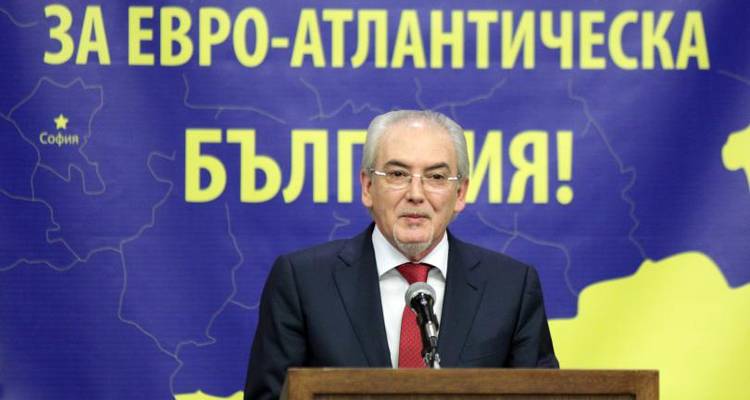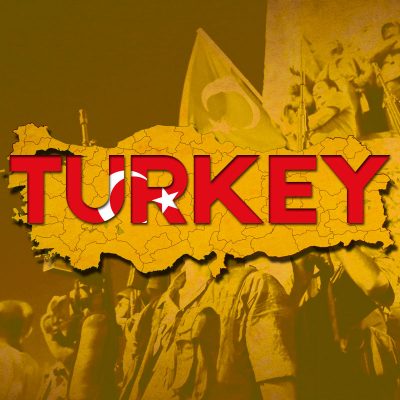
Appeared in Bulgarian at A-specto, translated by Valentina Tzoneva exclusively for SouthFront
A newspaper close to the government and President Erdogan directly urged Bulgarian Turks to support the party of Lyutvi Mestan.
“Yeni Akıt” newspaper, close to Turkey’s ruling Justice and Development Party, published an article by Ayhan Demir titled “The DOST union” dedicated to the upcoming elections in Bulgaria on 26th March. The article starts as a journalistic analysis but ends as a direct political appeal with calls to support the party of Lyutvi Mestan.
It contains disturbing assertion that “attacks on Islam, Muslims and mosques are systematic and routine” in Bulgaria. Inaccuracies are presented; Glodjevo town where a few days ago the first round of partial mayoral elections was held is presented as a municipality, although it actually falls in the municipality of Vetovo. DOS party relies on massive vote of Bulgarian citizens who immigrated to Turkey. At the last presidential election 21,658 of them supported the candidate of GERB, Tsetska Tsacheva after Mestan appealed for support.
The newspaper that published the text is part of a machine which the opposition calls “Havuz Medyası” (literally – “Pool Media”); the media bought over the years by representatives of the party of President Recep Tayyip Erdogan and known for its close to the government position. Here’s the full story:
The DOST Union *
Written by Ayhan Demir in “Yeni Akit” on 22.02.2017
The rulers in Sofia maintain fiscal discipline. The economic growth in 2016 surpassed expectations. The unemployment rate is at its lowest level since 2009. Income growth is observed. It seems that the country maintains the criteria of the European Union. We have to appreciate these things properly.
Despite political instability and uncertainty in the economy, this is the image of the country but things are not as they seem.
Despite the positive data, Bulgaria has chronic problems. The leading problems are corruption and organized crime. The situation can be summed up with the words voiced by President Radev in one of his interviews: “We need to strengthen efforts to combat corruption and crime.” Another chronic problem of the country is the poverty. Bulgaria remains the poorest country in the EU and its population has a very low purchasing power.
The problems are not limited to the economy; there are signs of instability in the ethnic and confessional peace in the country. Crimes triggered by hatred are growing every day. Extreme nationalist speeches and racist attacks are in worrying proportions. There is a tendency to reduce the rights of minorities.
The Turkish minority is not allowed to make political propaganda in Turkish. DOST was refused registration because the abbreviation was a Turkish word. Attacks on Islam, Muslims and mosques are systematic and routine. No serious efforts are made to integrate the Roma minority. Mustafa Acar says: “good intentions only are not sufficient”.
Distrust of institutions is increasing progressively. In the period of 2012-2017, the country held three general elections, the voters turnout decreased. Since 1997, no one has been able to constitute two successive governments. It confuses both the people and the politicians. Split between Russia and the West the country follows a hesitant and erratic foreign policy.
The Bulgarians traditionally feel sympathy for Russia. The indigenous Turkish population and the large trade turnover make the cooperation of the country with Turkey a must. Yet, Bulgaria cannot follow a line of conduct that is contrary to EU rules. The country, which is not a member of the Schengen area and the Eurozone, and which lost the “South Stream” project does not know which way to go.
In such conditions Bulgaria goes to early parliamentary elections on March 26th. The key that will determine the direction of the country is again in the hands of the Turkish minority. Muhammad Ikbar rightfully says: “If there is no unity of action, unity of understanding is useless.”
People’s Party for Freedom and dignity (PPFD) and Democrats for responsibility, freedom and tolerance (DOST), whose members are mostly ethnic Turks, realize that responsibility. That is why they go to the elections as “United DOST.”
Ibrahim Tenekeji said: “In most cases good intentions have been abused.”
Those who are tired of the lies and betrayals of the MRF (Movement for Rights and Freedom) already chose DOST. This is a conclusion reached by voters who supported the MRF for years. In the first round in partial local elections on 19 February, in the municipality of Glodjevo, district of Rousse, the DOST candidate, Mustafa Yahya leads. We express the hope that on 26 February this success will be repeated.
Of course, the real goal is to send a worthy representation of DOST to the National Assembly. The first step towards this goal for the voters who live outside Bulgaria is to apply through the website of the Central Election Commission and declare their intention to vote. The second step is to support DOST.
Is Sadi Shirazi not correct when he said: “If a friend (DOST) loves a friend, what can the enemy do?”
Now is the time to distinguish between friends and enemies.
Now is the time for unity.
Now is the time of “United DOST”.





Yes they do.I am from Bulgaria and Turkey is meddling here.To be honest it is not only here.This is why nobody likes them.If everybody was honest they will tell you – we hate these POS.
the poor dear roma and turks…why would anyone hate these people ? they would never do anything wrong !
Gypsies and turks … people should vote for the exact opposite of what they vote.
Erdogan’s neo-ottomanism.